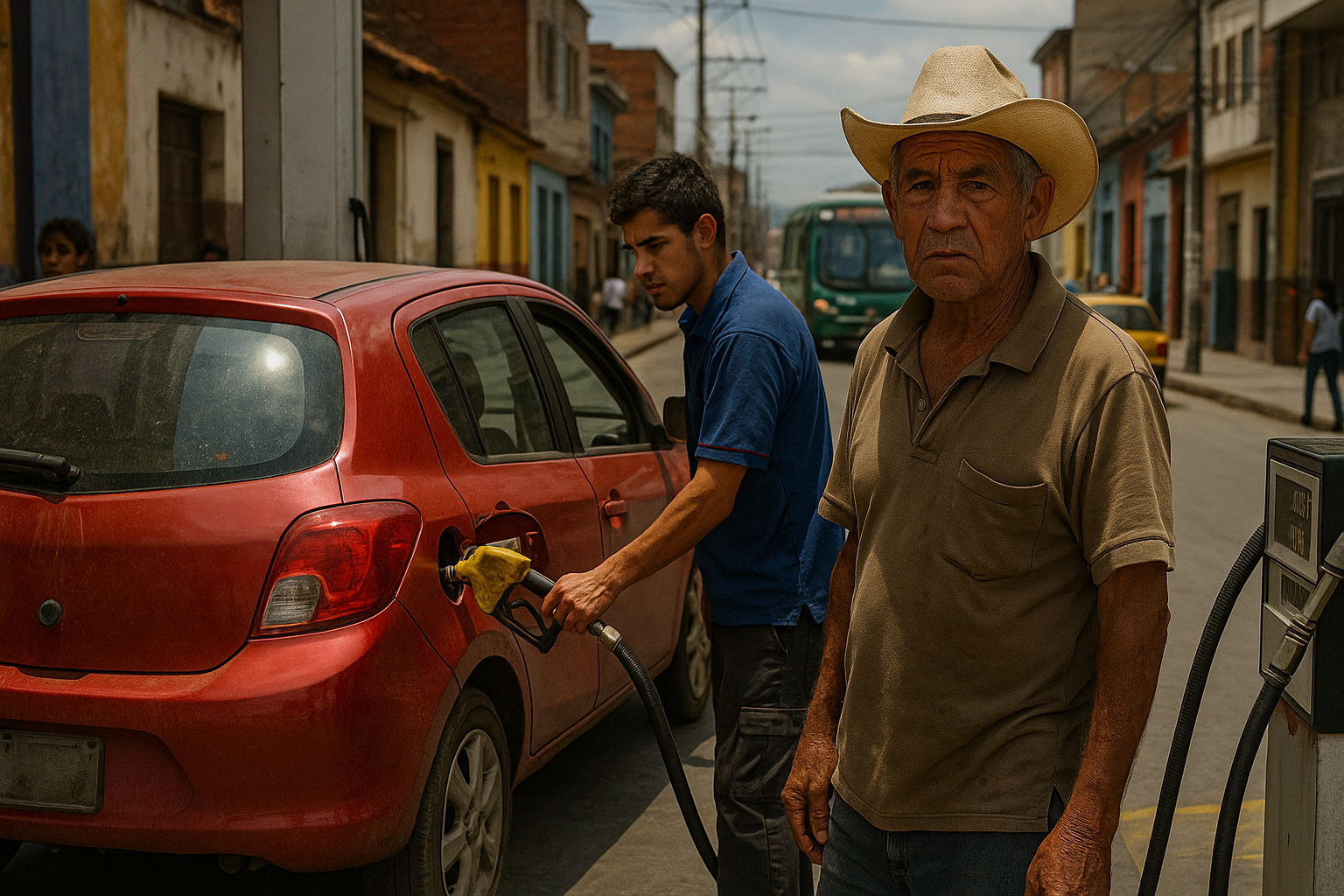Fuel Taxes in Latin America: Modest Income Losses but Harsh Impacts on the Poor
The World Bank report finds that raising and aligning fuel taxes in Latin America and the Caribbean modestly reduces household incomes (0.1–1.2%) but hits poorer groups hardest, especially through LPG and diesel costs. It argues reforms are manageable if paired with targeted transfers and broader social policies to protect vulnerable households while advancing climate goals.

Fuel prices have always been a political hot button in Latin America and the Caribbean. From Mexico’s “gasolinazo” protests to riots in Ecuador, attempts to raise fuel taxes or cut subsidies often spark anger on the streets. Governments defend these reforms as necessary for balancing budgets and fighting climate change, but citizens frequently see them as unfair. A new World Bank study sheds light on this debate, asking a crucial question: who bears the burden of fuel taxation in the region?
The report, which looks at six countries, Brazil, Jamaica, Mexico, Paraguay, Peru, and Uruguay, finds that the impact of fuel tax reforms is smaller than many fear, but also uneven. On average, households lose between 0.1% and 1.2% of their income after such reforms. That’s less than the loss caused by a typical year of inflation. Yet for poorer families, even small income cuts can be painful, especially when the costs come from essential items like cooking fuel or food transport.
The Uneven Impact of Different Fuels
Not all fuels affect households in the same way. Taxes on gasoline tend to hit wealthier families the most, because car ownership is concentrated among the rich. In fact, in countries like Mexico and Jamaica, higher gasoline taxes slightly reduce inequality, since the wealthy carry more of the burden.
The story is very different with liquefied petroleum gas (LPG), which millions of low-income families rely on for cooking. Any increase in LPG prices falls hardest on the poor. In Peru, for example, a 25% rise in LPG prices would reduce the incomes of the poorest households by 0.6%, compared with just 0.2% for the richest. Diesel is another problem fuel. Though poorer households don’t buy it directly, they feel its effects when food and transport costs go up. In Brazil and Paraguay, diesel-driven inflation hurt the poorest the most.
Poverty Risks and Political Tensions
How much do these reforms shift poverty levels? According to the World Bank, a uniform carbon tax of US$60 per ton of CO₂ would push around 615,000 Mexicans and over 800,000 Brazilians into poverty. While significant, these increases are smaller than the typical year-to-year fluctuations in poverty rates caused by economic cycles.
The bigger problem is political. Citizens often don’t believe governments will compensate them fairly, even when programs exist. Protests break out quickly because fuel price hikes are visible and immediate, while cash transfers or subsidies arrive later, if at all. In some countries, social protection programs are strong; Brazil and Uruguay cover most poor households, but in others, like El Salvador, very few poor families receive benefits. This makes reforms highly sensitive and sometimes explosive.
Can Compensation Work?
The report suggests that carefully designed compensation can ease the pain. Expanding or topping up existing cash transfer programs could reduce income losses for the poorest 40% by almost half. Uruguay, for instance, could use its Tarjeta Uruguay Social program to shield poor households from two-thirds of the income loss.
But there’s a catch: middle-class families, who often feel squeezed but don’t qualify for aid, remain angry and politically influential. Without broader benefits, such as better public transport, reliable electricity, or improvements in education and health services, reforms risk losing public trust. In other words, compensation helps, but alone it is not enough to win people over.
The Way Forward: Balancing Climate and Fairness
At its core, the report argues that fuel tax reforms are necessary if the region is serious about tackling climate change and securing public revenues. When fuel prices reflect their true costs, including pollution, health impacts, and traffic congestion, societies can transition more effectively to cleaner energy. Yet the reforms must be designed with fairness in mind.
This means governments should combine higher fuel taxes with targeted cash transfers, stronger social protection systems, and visible improvements in public services. Done right, the short-term costs are manageable. Done poorly, they can ignite unrest and deepen inequality. The message is clear: fuel taxation in Latin America is not just about climate or budgets, it is about fairness and trust. Citizens will only accept reforms if they believe the sacrifices are shared and the benefits are real.
- READ MORE ON:
- World Bank
- gasolinazo
- fuel tax reforms
- gasoline taxes
- LPG
- FIRST PUBLISHED IN:
- Devdiscourse
ALSO READ
Contracting Carbon: The World Bank’s Blueprint for High-Integrity Climate Solutions
Carolina Rendón Named World Bank Resident Representative for Dominican Republic
World Bank Urges Mongolia to Seize Mining Boom for Crucial Fiscal Reforms
World Bank Joins MADE Alliance to Drive Africa’s Digital Transformation
World Bank Approves $50M Grant to Boost Competition and Inclusion in Tajikistan










